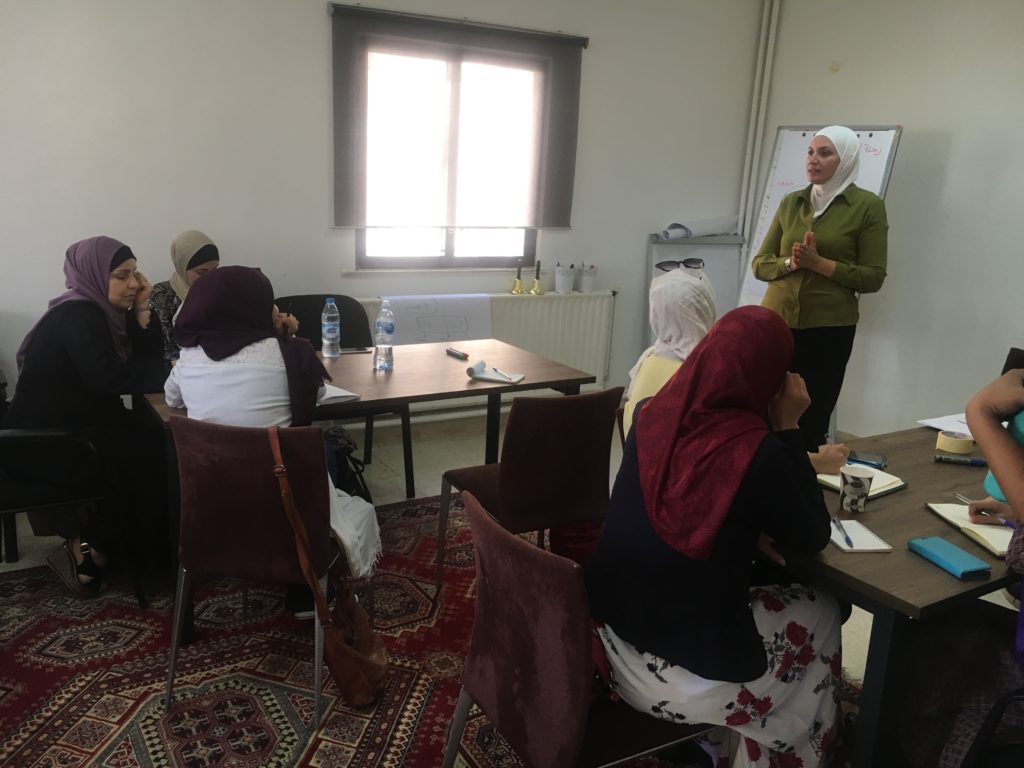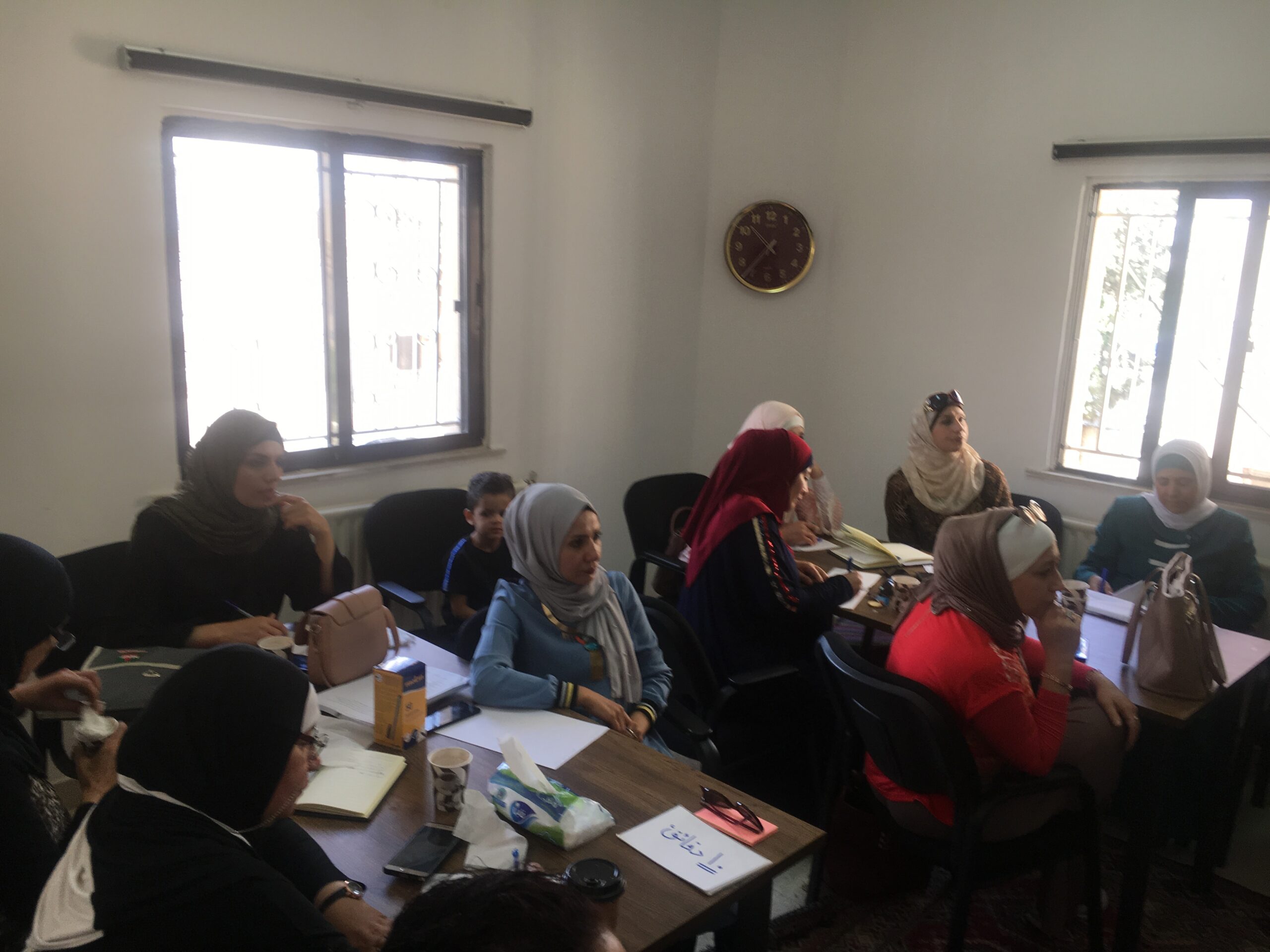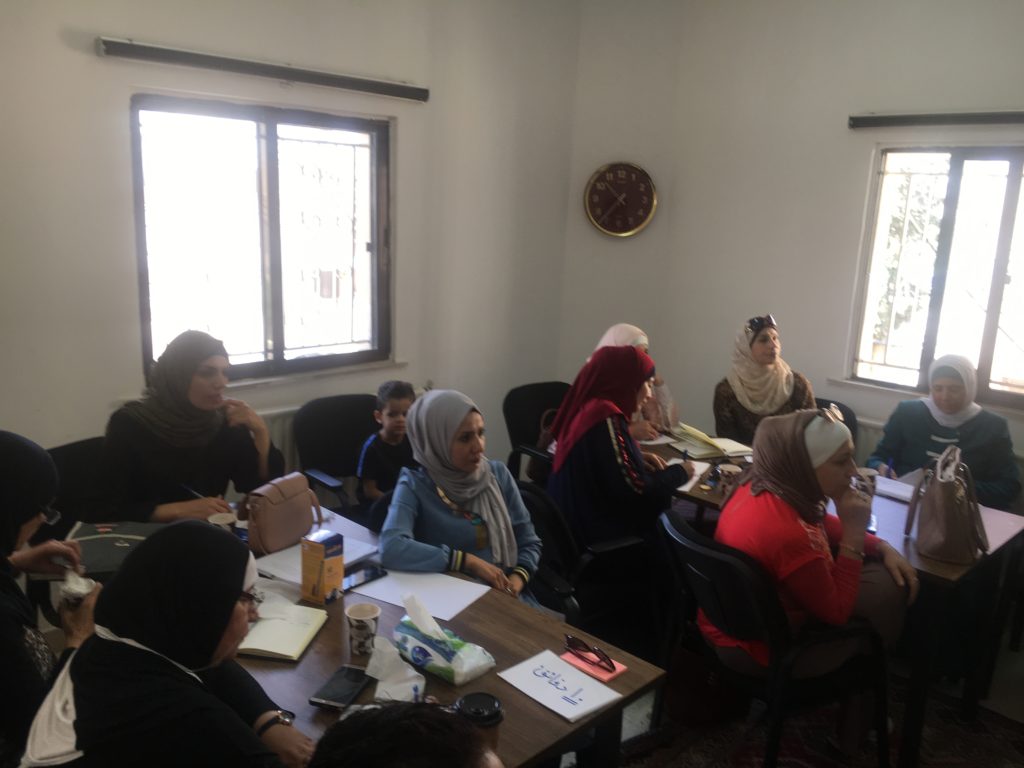id=”676″ id=”post-2037″ class=”wp-post-content-block ” itemscope itemtype=”http://schema.org/BlogPosting” itemprop=”blogPost”>
Stand Up with the Teacher Campaign; Legal Empowerment is Key
By: Shara Jazzar
What do women in general or female teachers in particular need to become leaders capable of claiming or protecting their rights? For the Ahel’s Stand Up with the Teacher Campaign, the answer is pretty straightforward: capacity building and increased awareness on their rights and how the relationship with their employers should be. This will ensure that females have proper access to sources of information on women leadership and develop strong and effective communication skills. Moreover, this will support the creation of a fair work place in order to motivate women to join the labor market and increase their representation in the public sphere.
On the practical level, the above has been translated to a series of activities and workshops organized by the Stand Up With the Teacher Campaign that aimed at introducing teachers to the Jordanian Labor law and procedures as tools to know their rights and enable them to collectively organize themselves in order to claim them.
Labor law workshop
Led by a lawyer, the Jordanian Labor law workshop offered legal insights and knowledge to female teachers through discussing various clauses of the law, as well as a safe space for questions and clarifications related to how to manage their contracts while ensuring that their rights are protected. Furthermore, this created for them the opportunity to know what they should focus on when discussing contracts, in addition to properly relying on the law to support their stand during confrontations with schools’ administrations.
Besides, the workshop was an eye-opener to a number of teachers who were surprised to discover that situations or procedures that they considered normal and legal turned out to be illegal, and that they could – and should – report them. In that framework, the gathering was the perfect occasion for women teachers to share stories of situations during which their rights were infringed, and benefit from the guidance of the session’s facilitator to the best practice to claim them, or avoid such situations in the future. For example, in case a teacher were requested to resign at the end of the scholastic year and actually did sign, she can still resort to court and explain that she was forced to do so; and very likely win her case if she is capable of proving it.
Likewise, various scenarios of situations during which the rights of teachers were breached– such as illegal deductions from their salaries, working during holidays or overtime, scope of the terms of reference, maternity, annual and sick leave – were presented, along with the legal perspective in that regards.
Also, the differences between various types of contracts was explained in terms of parties – one or more – and duration, limited or unlimited, as these affect the termination procedure and whether or not compensation should be paid by any of the parties involved or a notice period should be respected.

The Unified Contract and social security
As a result of advocacy and pressure made by the Stand Up with The Teacher Campaign, the Unified Contract came to life. Teachers were introduced to it and to the rights it guaranteed to them if they insisted on signing it, such as an annual raise of 5% – provided it does not exceed 45 JODs.
Throughout the workshop, teachers learnt that the internal policies of a company should at least give them the same rights granted by the Labor Law, or provide more rights; but never less. Furthermore, being registered at the Social Security Corporation is not a favor made to employees but a right that guarantees the latter have proper social protection during and after their time of employment; thus, they should report any infringement to this right.
A glimpse of hope
Finally, the legal workshop gave hope to teachers. Because of it, many of them will be able to claim rights they did not know of and negotiate better contracts for the coming scholastic year; thus, regain some trust in themselves and their teaching mission. Armed with their legal knowledge, these teachers have become empowered women who have strong and clear voices at their schools and in society, and are capable of using proper legal arguments and references in order to make positive change in their lives and that of others; either on account of the knowledge they have acquired or by sharing it with others. At the end of the day, teachers are role models to their students. Hence, which image should they share with them? That of rights advocates or that of silent victims?





